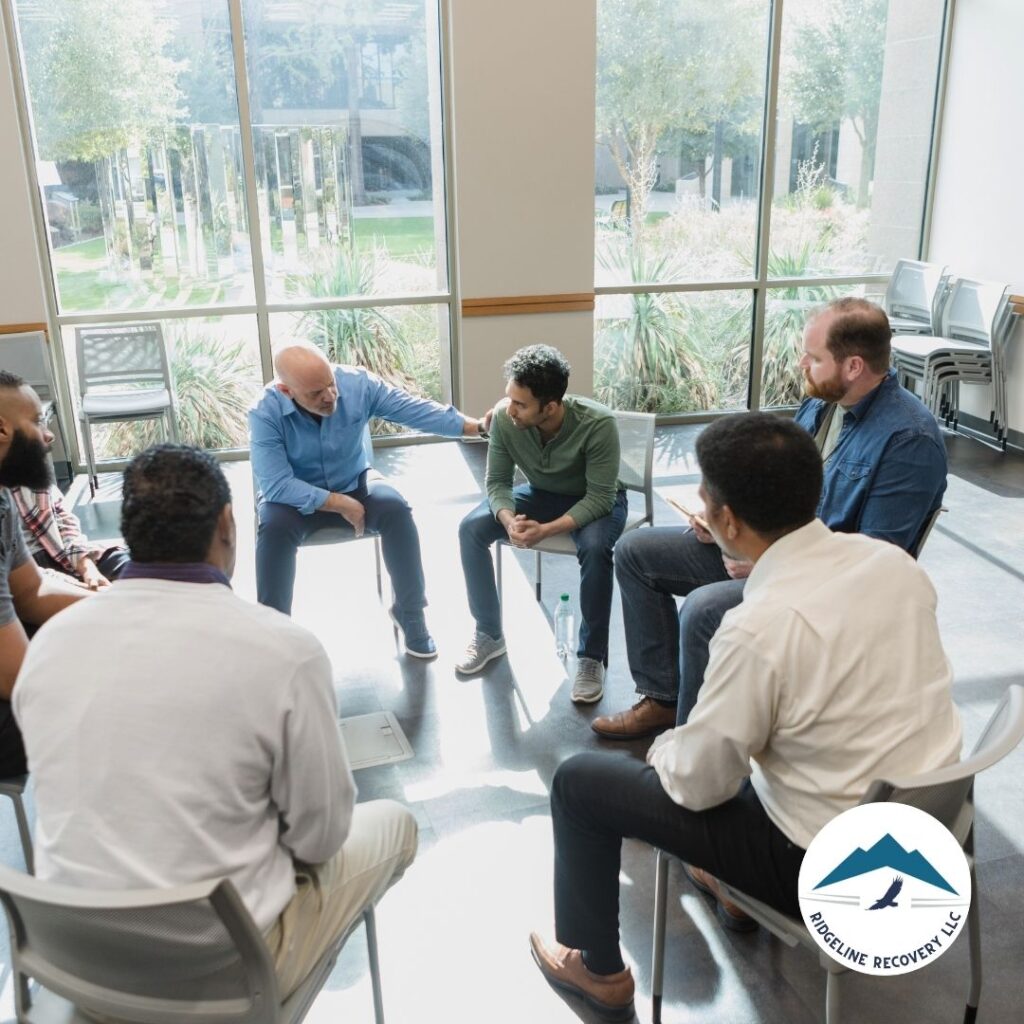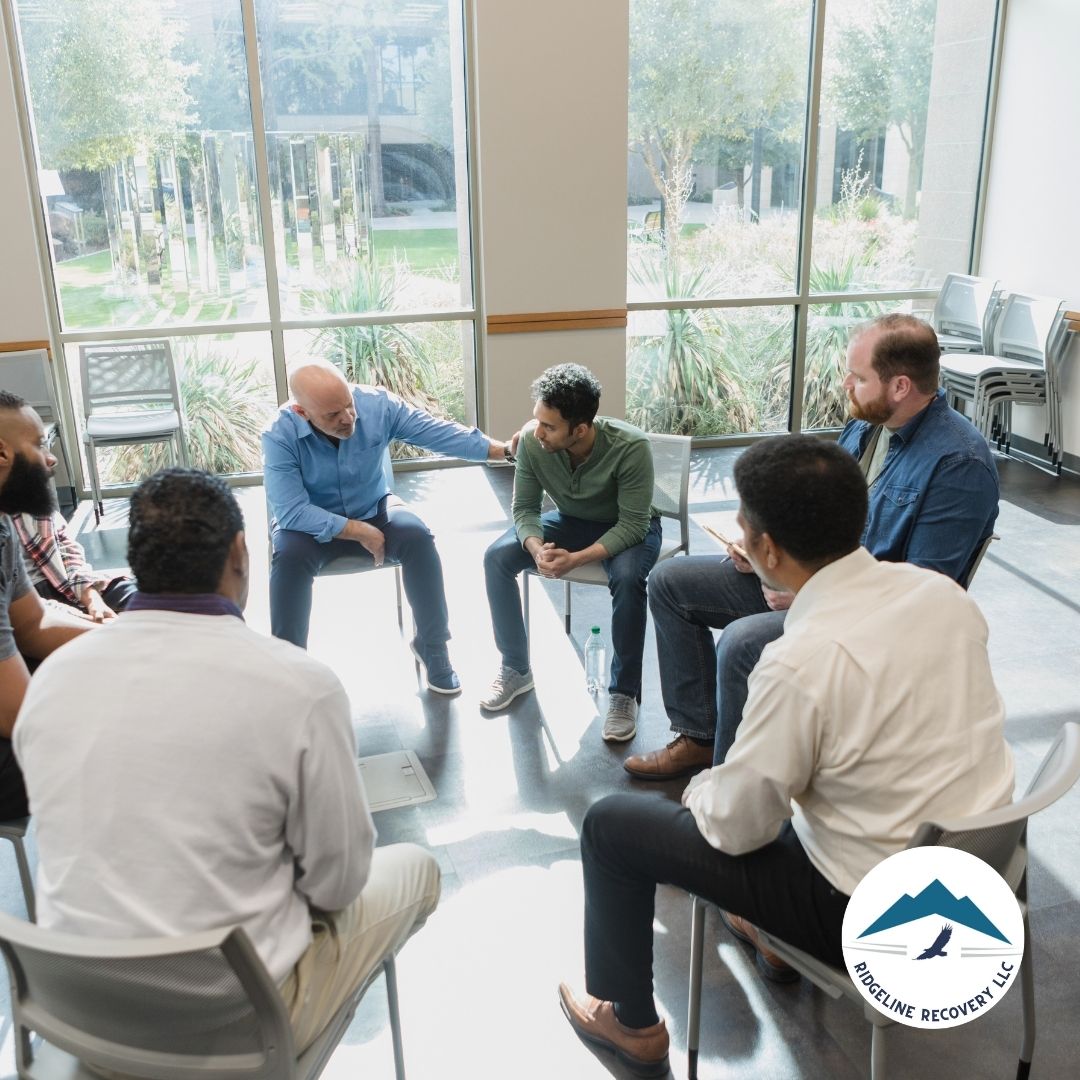When it comes to finding a path forward, addiction recovery often feels like looking for a needle in a haystack. If you’re here looking for addiction treatment Columbus that will actually stick—therapy that goes beyond temporary fixes and gets you real results—you’re in the right place.
We’re talking about practical recovery options, solid support, and effective addiction therapy tailored for you.
Let’s dive into why the right addiction treatment in Columbus, Ohio can make the difference between white-knuckling it on your own and creating a sustainable, addiction-free life.
The Importance of Choosing the Right Addiction Treatment Columbus, Ohio
What does “right” mean here?
Addiction treatment Columbus options range from inpatient to outpatient, traditional to holistic, short-term to extended care. But one thing is clear: treatment isn’t just about getting clean. It’s about building a life where sobriety isn’t a chore but a way to thrive.
Why Columbus?
Ohio has seen the challenges of substance abuse firsthand, but it also offers some of the best resources for recovery. From structured inpatient facilities to supportive outpatient services, addiction treatment Columbus options cover the full spectrum of care for those ready to take control.
Types of Addiction Treatment Columbus Programs: Which One is Right for You?
Inpatient Treatment Centers in Columbus, Ohio
Inpatient rehab centers offer 24/7 care, structure, and a focused environment where you can step away from everyday stressors.
- Why Go Inpatient?
If your environment makes sobriety tough, inpatient treatment is the reset button. You’re removed from potential triggers and immersed in a supportive community. - Daily Structure and Medical Support
This is where inpatient substance abuse rehab goes beyond “getting clean.” With scheduled therapy, medical supervision, and healthy routines, you’re setting yourself up for sustainable habits.
Outpatient Programs for Addiction Treatment Columbus
Outpatient programs give you flexibility if you need to keep working, stay with family, or prefer not to take time away from home.
- Who Should Go Outpatient?
Outpatient can work if you’re motivated and have a solid support system. It’s a fit for those looking for addiction therapy near me that fits into their current life rather than hitting pause on everything. - Vivitrol Clinics for MAT (Medication-Assisted Treatment)
Outpatient centers often partner with Vivitrol clinics near me for Medication-Assisted Treatment (MAT), which uses medications like Vivitrol to help manage cravings and reduce relapse risks, especially with opioid and alcohol addictions.
Comprehensive Care: Mental Health Services Near Me and Dual Diagnosis
Mental health and addiction often go hand-in-hand. Anxiety, depression, and trauma don’t magically disappear with sobriety, which is why addressing both is crucial.
Mental Health and Addiction: A Dual Diagnosis
What’s dual diagnosis?
Dual diagnosis means treating addiction and underlying mental health conditions simultaneously. From mental health services near me to specialized therapists, Columbus offers resources that understand the complexity of addiction and mental health.
- Why It’s Essential
Ignoring one problem usually makes the other worse. Mental health therapists near me provide the necessary support to work on trauma, depression, or anxiety while addressing addiction. - Mental Health Facilities
In Columbus, mental health treatment centers near me offer the comprehensive care needed to tackle both issues, improving long-term recovery chances.
Holistic Approaches to Addiction Recovery Columbus
Recovery isn’t just about quitting substances; it’s about building a healthy, fulfilling life. Columbus is on the map for incorporating holistic approaches that focus on the whole person.
Adventure Therapy and Fitness as Recovery Tools
Adventure therapy isn’t just about hiking or outdoor activities; it’s a powerful tool that builds resilience, teamwork, and confidence.
- Getting Out of Your Comfort Zone
Whether it’s hiking in the Appalachian Mountains, Ohio or tackling physical challenges, adventure therapy helps patients gain confidence, manage stress, and find joy without substances. - Physical Health in Recovery
Incorporating fitness and wellness routines strengthens the mind-body connection. Many centers in Columbus use fitness programs to help individuals feel strong and capable, fighting relapse through personal empowerment.
Nutrition and Healthy Living
Healthy food impacts mood, energy, and the body’s ability to heal.
- Foods That Detox and Rebuild
A nutrient-rich diet aids in the body’s detox process, supporting liver health, managing cravings, and helping you get back on track physically. Columbus programs offer nutritional counseling, understanding that a healthy body reinforces a healthy mind. - Long-Term Health Habits
Building habits around proper nutrition and exercise lays a foundation for sustainable recovery. You’re not just surviving; you’re building a life you’re proud of.
The Role of Family Support in Columbus Addiction Recovery Programs
Family dynamics can be tough. But they’re also a massive part of many people’s motivation for recovery.
Involving Family in the Recovery Process
In Columbus, addiction treatment Columbus Ohio programs often include family therapy sessions. Here’s why:
- Accountability and Motivation
Family members provide support and encouragement, making recovery feel less like a solo journey. - Understanding Addiction
Family therapy educates loved ones on addiction, helping them understand triggers, emotional needs, and how best to support their family member in recovery.
Setting Boundaries and Building a Supportive Environment
Support is essential, but boundaries matter too. Columbus recovery programs teach families to offer support without enabling, helping build a healthier home environment.
The Columbus Community: Recovery and Sober Living Options
After treatment, staying connected to the recovery community is crucial. Columbus has plenty of options for support groups, sober living, and alumni programs.
Sober Living Homes in Columbus
For those not ready to jump back into daily life, sober living homes offer a structured, supportive environment.
- Accountability in Sober Houses
Residents are surrounded by others in recovery, providing accountability and camaraderie. Half-way homes and sober houses reinforce healthy habits and reduce the risk of relapse. - Building Long-Term Connections
Many who stay in sober living build friendships that become part of their long-term recovery network.
Is Addiction Treatment Columbus Effective?
With the right approach, tools, and commitment, absolutely. But there’s no one-size-fits-all. Columbus offers multiple paths, but finding the right mix of support, therapy, and lifestyle changes is key.
Measuring Success: What Recovery Really Looks Like
Success in recovery isn’t just about abstinence. It’s about regaining control, building resilience, and leading a life that doesn’t need substances.
- Milestones Beyond Sobriety
Setting personal and professional goals provides motivation beyond just “not using.” This is about reclaiming your life. - Regular Check-ins and Accountability
Columbus programs encourage regular check-ins with therapists and support groups to maintain accountability, growth, and motivation.
Long-Term Strategies for Addiction Recovery: Building a Life Beyond Treatment

Recovery Doesn’t Stop After Rehab
Completing a treatment program isn’t the end—it’s the beginning of a new chapter. Many people think addiction treatment Columbus ends after a stint in rehab, but true, sustainable recovery is built on ongoing effort and continual support. Addiction treatment Columbus provides a comprehensive approach, but long-term success comes down to staying engaged and proactive.
What does “aftercare” mean in addiction treatment Columbus?
Aftercare involves structured support following your time in an inpatient or outpatient program. It’s about reinforcing what you’ve learned, avoiding common relapse triggers, and building a network of people and resources to lean on.
Essential elements of aftercare might include:
- Regular therapy sessions with an addiction counselor or therapist.
- Community support meetings, such as 12-Step groups or secular alternatives like SMART Recovery.
- Check-ins at an addiction treatment Columbus facility, like Ridgeline Recovery LLC, where the emphasis is on sustaining progress.
These are some of the pillars that support people as they re-enter daily life.
Developing Coping Mechanisms with Addiction Therapy in Columbus
Why Coping Skills are Critical for Sustained Sobriety
When you think about it, addiction is often a way of coping with stress, trauma, or unresolved mental health issues. Therapy is a tool for not only addressing these underlying issues but developing alternative, healthy coping mechanisms. The importance of coping skills can’t be overstated—they’re what keeps you grounded when life throws a curveball.
Building a Coping Toolbox: Techniques You Can Use Daily
In addiction treatment Columbus, professionals guide you through a variety of tools, but ultimately, the goal is to find which ones work best for you.
Here are a few effective techniques commonly used in recovery:
- Mindfulness Meditation
Mindfulness is a valuable skill for staying in the moment and managing difficult emotions. Daily practice reduces anxiety and improves self-awareness, making it easier to recognize and control cravings. - Journaling
Writing down thoughts and feelings can be therapeutic, helping to clear the mind and confront challenges directly. - Physical Activity
Exercise has proven mental health benefits, improving mood, reducing stress, and even alleviating withdrawal symptoms in some cases. Many people in recovery find value in establishing a fitness routine to stay focused and healthy.
The Role of Nutrition and Health in Recovery
How Proper Nutrition Supports Recovery
In early recovery, the body and mind are both undergoing a lot of changes. Substance abuse depletes vital nutrients, disrupts sleep patterns, and wears down the immune system. As part of addiction treatment Columbus, nutrition therapy is integrated into many programs to help people rebuild their health from the inside out.
- Balanced Diets for Physical Recovery
A balanced diet rich in proteins, complex carbs, and healthy fats helps to stabilize mood and energy levels. Foods high in antioxidants, such as berries and leafy greens, can also support the body’s natural detox process. - Foods That Detox and Rebuild
Detox-friendly foods like citrus fruits, ginger, and garlic may support liver function, while leafy greens provide essential vitamins and minerals.
Addressing Specific Substance Use Disorders in Columbus
Alcohol Addiction: Specialized Treatments
The Alcohol addiction requires a tailored approach due to its physical dependency factors. Alcohol detox centers in Columbus specialize in managing withdrawal symptoms and reducing health risks associated with quitting alcohol.
What makes alcohol detox different?
Alcohol has specific withdrawal symptoms, including delirium tremens (DTs), that can be life-threatening without proper care. A medically supervised detox, provided by reputable alcohol detox centers near me, ensures you’re safe and supported as your body clears the substance from your system.
Opioid Addiction and Vivitrol Therapy
Opioid addiction has a notoriously high relapse rate, but Vivitrol clinics near me offer Medication-Assisted Treatment (MAT) options to mitigate cravings and reduce relapse risk. Vivitrol is a once-monthly injection that blocks opioid receptors in the brain, helping to stabilize people through early recovery.
Setting Realistic Expectations for Recovery in Columbus
What Recovery Really Looks Like: Breaking Myths and Misconceptions
Recovery is a journey that involves progress, setbacks, and growth. It’s not a straight line. Some people believe the end goal is an immediate and sustained sobriety, but recovery is more complex than that.
Here’s what realistic recovery looks like:
- Progress is measured in personal milestones, not just time.
Focusing on achieving goals (like finding stable housing, maintaining a job, or reuniting with family) is often a better metric than simply counting days. - Staying connected to your recovery community.
Your support network plays a significant role in long-term sobriety. Staying involved in support groups and participating in aftercare programs are key to maintaining focus.
Embracing the “Pink Cloud” Phase
There’s a term in recovery known as the “pink cloud,” which describes the initial high many people feel right after treatment. This phase is characterized by excitement and optimism, but it doesn’t last forever. Preparing for the end of this phase with concrete tools and support is crucial.
Family Dynamics in Recovery: Educating and Involving Loved Ones
Family Therapy and Support Programs in Columbus
The Family dynamics can impact recovery either positively or negatively. Including family in the healing process helps address relationship issues that could act as triggers.
In Columbus, family-focused programs are part of many addiction treatment Columbus offerings. These sessions provide education for loved ones, helping them to understand addiction, set boundaries, and support the recovery journey.
Overcoming Common Obstacles in Long-Term Recovery
Dealing with Triggers and High-Risk Situations
A trigger is anything that can set off the urge to use again. These can be people, places, or emotions. Addiction therapy services in Columbus train you to identify and manage these triggers effectively.
- Have a Support Contact Ready
Establish a go-to person you can call if you’re facing a trigger. Talking through it with someone else can help you stay grounded. - Develop a Plan for High-Risk Situations
If you know you’ll be around alcohol or other substances, have a plan. Whether it’s avoiding the situation altogether or having an exit strategy, being proactive is key.
The Connection Between Sobriety and Mental Wellness
Mental Health Counseling for Long-Term Stability
Sobriety and mental health go hand in hand. Addressing underlying mental health issues ensures you’re building a stable foundation for long-term recovery.
Many mental health services near me offer dual-diagnosis programs, treating both substance abuse and mental health conditions like depression, anxiety, or PTSD.
- Benefits of Regular Mental Health Check-Ins
Regular counseling sessions help you stay on top of mental health, manage stress, and prevent relapse by working through unresolved trauma or underlying conditions.
Finding Purpose: Building a Meaningful Life Beyond Addiction
Why Finding Purpose is Key in Recovery
Having a purpose gives you something to wake up for each day. In recovery, purpose might mean helping others, achieving personal goals, or repairing relationships. Columbus recovery programs encourage participants to set personal goals and build a life that doesn’t revolve around addiction.
Practical Steps to Find Purpose Post-Treatment
- Set Small, Achievable Goals
Start with small, manageable goals that give you a sense of accomplishment and build confidence. - Find a Hobby or Passion
Many recovery programs encourage people to explore new interests or hobbies. Whether it’s art, fitness, or learning a new skill, finding something you enjoy can bring structure and joy to your life. - Give Back
Service work or volunteering is a powerful way to find purpose. Helping others in the recovery community fosters gratitude and perspective.
Building Resilience for Long-Term Sobriety in Columbus
Why Resilience is Key in Overcoming Addiction
Recovery isn’t just about stopping substance use—it’s about developing the mental and emotional resilience to handle life without turning back to old habits. Resilience is a muscle you build with time and effort, and in addiction treatment Columbus, this concept is front and center.
Imagine life without a safety net of substances. It’s challenging, but resilience training gives you the tools to deal with stress, frustration, and temptation without breaking down.
Steps to Build Resilience in Recovery
1. Self-Reflection and Personal Growth:
Many programs focus on introspection, teaching you to dig into the root causes of addiction. Self-reflection builds a level of resilience that lets you respond to challenges thoughtfully rather than react impulsively.
2. Facing Discomfort Head-On:
In recovery, learning to tolerate discomfort is vital. This is especially true in addiction therapy, where the focus is on rewiring the brain to face cravings and urges directly.
3. Practicing Delayed Gratification:
Recovery means learning to appreciate progress over time. Developing patience and celebrating small victories trains your brain to seek long-term satisfaction instead of immediate highs.
Why Columbus is a Unique Place for Recovery
Columbus offers unique opportunities and resources that set it apart. From vivitrol clinics near me for medication-assisted treatment to holistic options within nature-rich areas like the Appalachian foothills, Columbus has a mix of traditional and innovative resources that make it an ideal city for anyone serious about achieving sobriety.
Adventure Therapy: Using Ohio’s Natural Resources for Recovery
What is Adventure Therapy?
Adventure therapy is an innovative approach that uses physical activities in natural environments to build confidence, reduce stress, and provide alternative ways to deal with trauma. Programs in and around addiction treatment Columbus often use Ohio’s stunning natural resources as a backdrop, which can be incredibly therapeutic.
How Adventure Therapy Supports Mental Health and Recovery
The benefits of adventure therapy go far beyond fresh air. Here’s how it contributes to recovery:
- Physical Activity and Mental Health: Physical activity naturally boosts dopamine and serotonin, the very chemicals many seek through substances.
- Building Trust and Teamwork: Group-based activities like hiking and canoeing require trust, building social skills and self-confidence, which are often affected by addiction.
- Stress Relief Through Nature: Spending time in natural environments has been proven to reduce cortisol levels. A calm mind is less likely to fall back into substance use as a stress response.
Faith-Based Recovery Options in Columbus
Understanding Faith-Based Addiction Therapy Services
Faith-based treatment involves integrating spiritual practices and beliefs into the recovery process. For some, this approach provides a meaningful anchor and a sense of purpose. Addiction treatment Columbus includes faith-based programs for those who find that spirituality or religious practices play an essential role in their lives.
The Benefits of Faith in Recovery
- Sense of Purpose: Faith-based recovery programs provide a deeper sense of purpose that can be instrumental in maintaining sobriety.
- Community and Accountability: Many faith-based communities offer accountability structures, such as mentors or sponsors, to help people stay committed.
- Support Networks: Churches and religious communities provide long-term support networks that often extend far beyond the initial recovery phase.
Embracing the Challenges: Overcoming Relapse in Recovery
Relapse Isn’t Failure: How to Use it as a Stepping Stone
Relapse can feel like a setback, but it doesn’t mean you’ve failed. In fact, for many, relapse is part of the recovery journey. The critical factor is learning from it rather than letting it pull you back into a downward spiral.
How do you turn relapse into progress?
- Identify Triggers: Each relapse teaches you something new about your personal triggers. These insights are valuable for planning future strategies.
- Build Stronger Boundaries: Recovery often involves setting boundaries, whether with people, places, or habits that aren’t conducive to sobriety.
- Stay Connected to Support Systems: During relapse, turning to your support network can help you get back on track faster. Recovery resources in addiction treatment Columbus offer community connections, counseling, and accountability for anyone struggling with relapse.
The “Pink Cloud” and Beyond: Staying Grounded
The “pink cloud” phase, or initial euphoria after treatment, is great, but it’s also temporary. Recognizing that it will fade allows you to prepare. Instead of relying on this euphoria, focus on building daily routines, realistic goals, and a strong support system to navigate the ups and downs of post-treatment life.
Medication-Assisted Treatment (MAT): A Deeper Look at Options
Exploring MAT in Columbus: Vivitrol and More
Medication-Assisted Treatment (MAT) is a powerful tool for certain types of addiction, especially opioids and alcohol. Vivitrol clinics near me offer monthly shots that help reduce cravings, making it easier to stick to sobriety in those early stages.
- Vivitrol: Non-addictive, Vivitrol blocks opioid receptors in the brain, helping reduce cravings and avoid relapse.
- Methadone and Suboxone: For individuals dealing with intense opioid addictions, these options provide more manageable pathways to tapering down substance dependence under medical supervision.
MAT isn’t a cure, but it’s an essential tool for those looking to manage specific substance dependencies effectively.
The Role of Family in Addiction Treatment Columbus
How Family Can Support Recovery in Columbus
Family support is often a game-changer in recovery. Family dynamics play a role in both the origins of addiction and the journey of recovery. Programs in addiction treatment Columbus offer family therapy to help loved ones understand how they can best support their family member’s sobriety.
Family Support Techniques:
- Setting Healthy Boundaries: Families need to establish boundaries that encourage independence while showing support. Codependent behaviors can often hinder recovery.
- Educating Themselves on Addiction: Understanding addiction as a disease rather than a choice helps families approach their loved one’s journey with compassion.
Understanding Mental Health and Co-Occurring Disorders in Recovery

Why Addressing Mental Health is Essential for Addiction Treatment Columbus
Substance abuse often masks deeper mental health issues, such as anxiety, depression, or trauma. Co-occurring disorders complicate recovery, making dual-diagnosis treatment essential. Dual-diagnosis options in addiction treatment Columbus ensure that both addiction and mental health conditions are treated concurrently.
Benefits of Dual-Diagnosis Treatment:
- Holistic Approach to Recovery: Treating both addiction and mental health leads to a more comprehensive approach.
- Reduced Relapse Risk: Unaddressed mental health conditions increase relapse risk, so dealing with both simultaneously strengthens recovery.
Options for Mental Health Treatment in Columbus
Columbus has a range of mental health resources, including mental health hospitals near me and outpatient options. Many mental health treatment centers near me also focus on trauma-informed care, which is crucial for individuals whose substance abuse stems from unresolved trauma.
Finding Joy in Recovery: Beyond Sobriety
Exploring New Hobbies and Passions in Recovery
Discovering new interests and activities is part of the recovery journey. Hobbies and passions fill the void left by substance use and offer meaningful engagement with life.
Ideas to Explore:
- Creative Pursuits: Art, music, or writing allows for self-expression and emotional release.
- Outdoor Activities: Exploring the Appalachian foothills or Columbus’s many parks provides physical exercise and mental rejuvenation.
- Service Work: Volunteering or mentoring others in recovery adds purpose to life and reminds you of how far you’ve come.
Addiction Treatment Columbus: FAQs and Common Questions
Q: What’s the difference between inpatient and outpatient addiction treatment Columbus?
A: Inpatient treatment requires staying at a facility, offering 24/7 support. Outpatient allows more flexibility and lets you live at home, attending sessions at scheduled times.
Q: Are there holistic options for addiction treatment Columbus?
A: Yes, Columbus has a growing number of programs incorporating holistic practices, from adventure therapy to nutrition counseling. These programs focus on the whole person, helping to rebuild body, mind, and spirit.
Q: How can family members support a loved one in recovery?
A: Educating themselves about addiction, attending family therapy sessions, and setting healthy boundaries can all make a huge difference.
Q: Is Vivitrol available in Columbus?
A: Absolutely. Vivitrol clinics near me in Columbus provide this effective, monthly treatment for managing cravings and minimizing the risk of relapse in opioid and alcohol recovery.
FAQs About Addiction Treatment Columbus (Part 2)
Q: What’s the first step to getting addiction treatment Columbus?
A: Reach out to a trusted provider or visit Ridgeline Recovery LLC at www.ridgelinerecovery.com. Their team will assess your needs and recommend a plan that works for you.
Q: How do I know if inpatient or outpatient is right for me?
A: Consider your environment, commitment level, and support system. Inpatient may be better if you need structure, while outpatient suits those with strong personal motivation and a safe home environment.
Q: Can addiction treatment Columbus help with mental health conditions?
A: Absolutely. Columbus has numerous dual-diagnosis programs designed to treat both addiction and mental health.
Ready for Change? Finding the Best Addiction Treatment Columbus Offers
Recovery is a journey, but with the right tools and support, a sober future is entirely possible. Columbus, Ohio, has the resources, expertise, and dedicated programs to make real recovery a reality.
And remember, reaching out isn’t a sign of weakness; it’s a powerful first step toward a life you’re proud of. Whether you need addiction therapy near me, access to mental health hospitals near me, or comprehensive addiction treatment Columbus Ohio, take that first step.
Because with the right help, sustainable sobriety is more than achievable—it’s the future waiting for you.
Embracing Your Journey to Sobriety with Ridgeline Recovery
In Columbus, Ridgeline Recovery LLC is here for anyone ready to embrace change. Sobriety is a journey that takes work, resilience, and support from a community that understands.
Whether you’re in need of addiction therapy near me, mental health services, or are simply ready to start your journey, Ridgeline Recovery provides the resources, guidance, and support you need to succeed.
Contact us at 614-618-5000 or visit 491 Georgesville Rd, Columbus, OH 43228 to begin your journey with a team that cares. At Ridgeline Recovery, we’re committed to helping you achieve long-term success through compassion, innovation, and expert care.
Call Us Now!
If you or a loved one is struggling with heroin or alcohol dependency, reach out to Ridgeline Recovery Center in Columbus, Ohio, today. At Ridgeline Recovery, we offer a path to hope and healing. Our comprehensive Addiction Recovery services include Addiction Therapy, Addiction Treatment, Vivitrol Clinic and specialized Mental Health Services designed to support your journey to recovery.
We provide Aftercare Programs and Peer Support to ensure you have ongoing assistance after treatment. Our dedicated team offers Case Management and Child Services for those needing extra support. For individuals who prefer a faith-based approach, we offer Faith-Based Recovery options.
Our programs feature Group and Individual Counseling, along with Medication-Assisted Treatment (MAT) to address your unique needs. We also have an Intensive Outpatient Program (IOP) and a Partial Hospitalization Program (PHP) for more structured care.
Our team includes Registered Nurse Services, Psychiatric Services, and Therapeutic Behavioral Services (TBS) to provide comprehensive support throughout your recovery process. We work with various Insurance Coverage plans to help you access the care you need.
Don’t wait—contact us now to start your journey toward a brighter future with Ridgeline Recovery.
For more stories and information Contact Us, visit our Blog page and Stories & Highlights.







